Planning content oftentimes feels a lot like trying to be psychic. You have to know what the community wants just before the whole community starts looking for it. And looking into keyword and search trends can help you find out what players are searching for — and how much competition there is attached to those search terms. Luckily for you, there are some pretty smart web tools out there that you can use to your advantage. For example…
Google Trends
We’ve talked about Google Trends before, but it’s such a valuable tool that it deserves reiterating. Google Trends will show you what’s hot, what’s on the rise, and what’s phasing out in terms of search inquiries. You can even get alerts when certain types of content start trending, or compare the relative search volume across a number of different terms for lengths of time ranging from several years to just a day or so. Pretty amazing.
You can use Google Trends to find keywords that are already trending, or see which keywords might be preferred over others. (Like whether it’s better to use Dark Souls 3 or Dark Souls III, for example.) I’ll step up on my RPG soapbox for a second to illustrate how we can gauge what users are interested in via search trends.
If we compare the traffic for Elder Scrolls 6 and Skyrim Remastered, you’ll see that there’s been a steadily rising interest in TES 6 ever since about the time the Skyrim hype would be falling, six months after its release in 2011. But there’s been next to no interest in Skyrim Remastered that entire time — until you see that sharp increase following its announcement at E3.
So going by this chart, up until E3, Elder Scrolls 6 would have been the topic to write on if this is the area you were looking to create content for. But post-E3, the Skyrim Remastered hype is strong — though if we look a little more closely at that trend for the last few days, we’ll see that our window of opportunity closed pretty quickly.
But even if this lead didn’t pan out, we know the search interest is there. And we can even come up with some content ideas which will feed on the inevitable hype train that’ll get going closer to the game’s release.
But this isn’t the only way to use Google Trends…
You can also use this tool to see what related search inquiries are currently trending. Let’s take a look at the recently released BioShock Remastered collection to see what people are searching for.
This collection just launched a day ago. So if we look at the search trends for “bioshock” and narrow our results to the last day, we see that there are a lot of searches for the following terms:
As you can see, there are a lot of people searching for information on keypad codes, weapon upgrade locations, and the chomper dental key. This means that something like a guide on those topics is likely to do really well and amass a fair amount of search traffic.
But Google Trends isn’t the only tool you have at your disposal. You also have…
Google Keyword Planner
This is another fantastic tool, but Keyword Planner is less focused on finding trends and more focused on deciding which keywords are most relevant for a given topic at the moment — which in turn can give you an idea of what search trends are currently rising. It’s all connected!
You’ll have to sign in with Gmail to use this tool. It’s mainly intended for advertisers to target their audiences and certain buzzwords they want their ads to show up near, but the insight this tool gives is invaluable even though we aren’t buying ads.
When you plug in a keyword, the system will spit out out a bunch of suggested keywords based on relevance and search volume. It’ll even tell you how much competition there is for that keyword — that is, the number of other sites that are capitalizing on that search term. The most lucrative content will have a high search volume with low competition, but a high volume with high competition shouldn’t always discourage you. (If the volume is low, though, it’s probably not the best thing to create content for unless you have reason to believe it’s about to start trending.)
For example, let’s see what happens when we plug the name of a game like SMITE into the planner:
We see that people are looking for the best gods, searching for content related to gems, and inquiring about the new update. So from this information, we can figure that maybe doing a “Best Gods in SMITE” or “Best Gods for X Role” would be a good bet. So would a guide to getting more gems in SMITE, or a recap of the latest update and what it’s going to add/change.
Other Keyword Tools
There are a lot of keyword planners that you can use to research keywords and find relevant trends. A lot of these tools will have similar names, but they all work a little bit differently.
Keyword.io
This is a relatively straightforward tool that allows easy copying of a large number of keywords. The tool will use take those keywords and return a list of search terms with words added to the front or back.
This can be a bit confusing at first, but it’s a great way to see what long-tail keywords you might want to focus on for further research.
Keywordtool.io
This one offers auto-complete algorithms to anticipate what sorts of keywords might pop up when Google’s auto-fill function kicks in. It has a lot of abilities and tools similar to Keyword.io, but you have to use a login to get the most out of it.
Ubersuggest.org & Grepwords
These two work hand in hand. Install the Grep extension for Chrome, then search keywords with Ubersuggest. This will allow you to drill down into keywords and build keyword phrases/chains in a more comprehensive (but more complex) way than the other keyword tools.
Whatever you find using these three tools, it’s probably a good idea to plug those keywords back into Google Trends and Google Keyword Planner just to double-check the search interest there.
But keep in mind that just because a keyword is not showing up in Google searches now, it doesn’t mean those keywords are not about to show up in searches! That’s why it’s important to do some legwork.
In another article, we’ll go over another type of research that can be invaluable for guide writing — community-based research. So stay tuned!


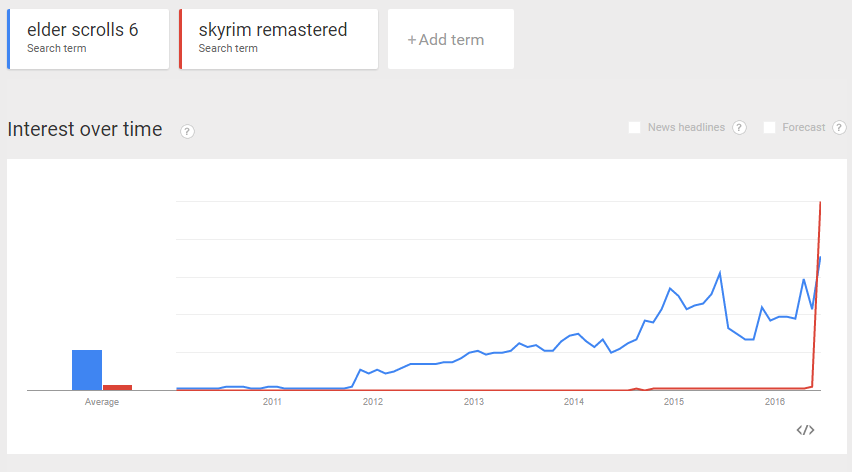
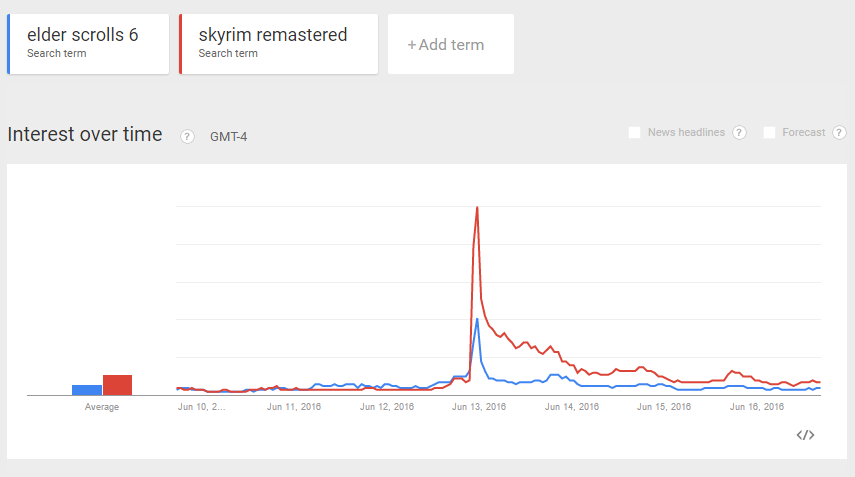
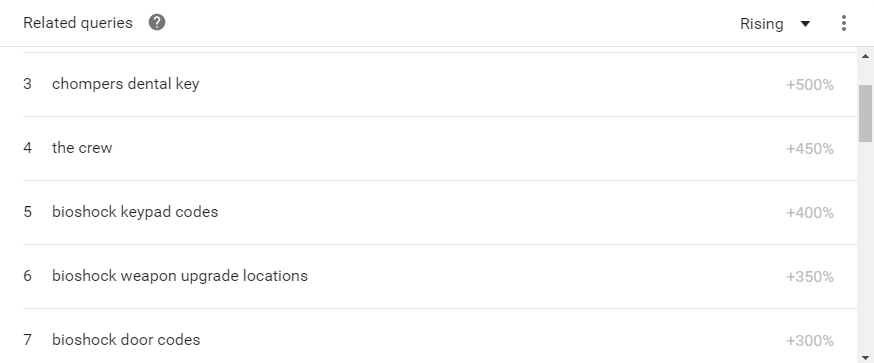
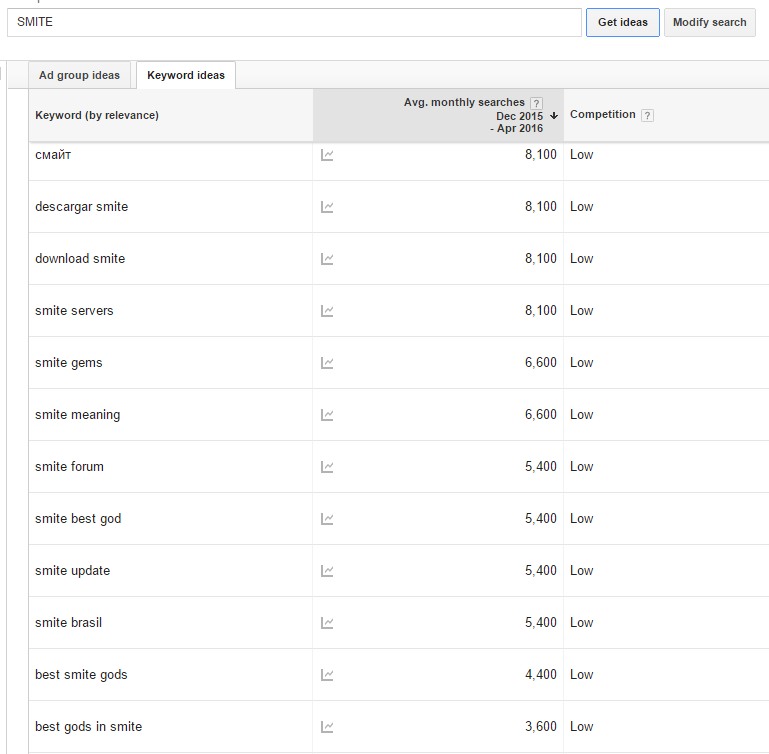

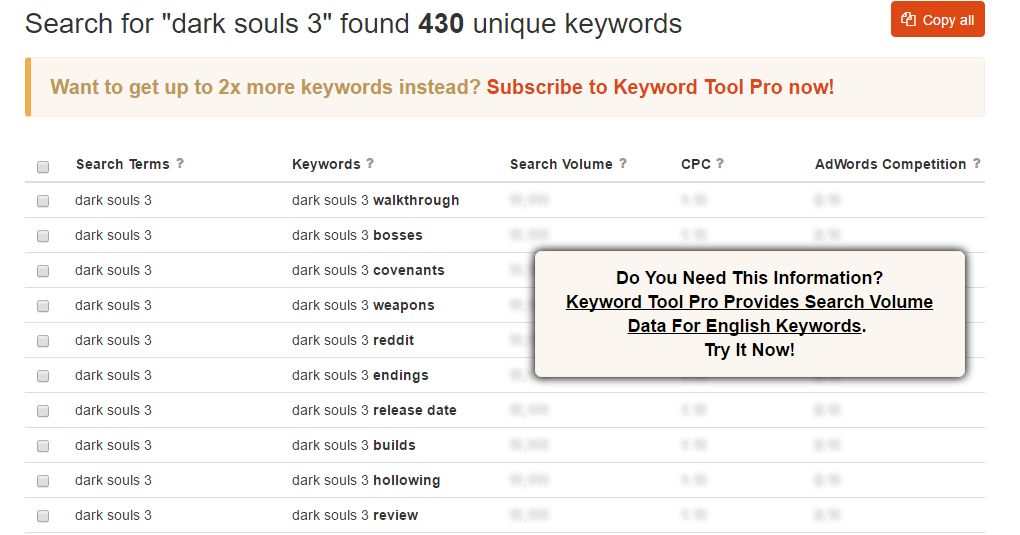


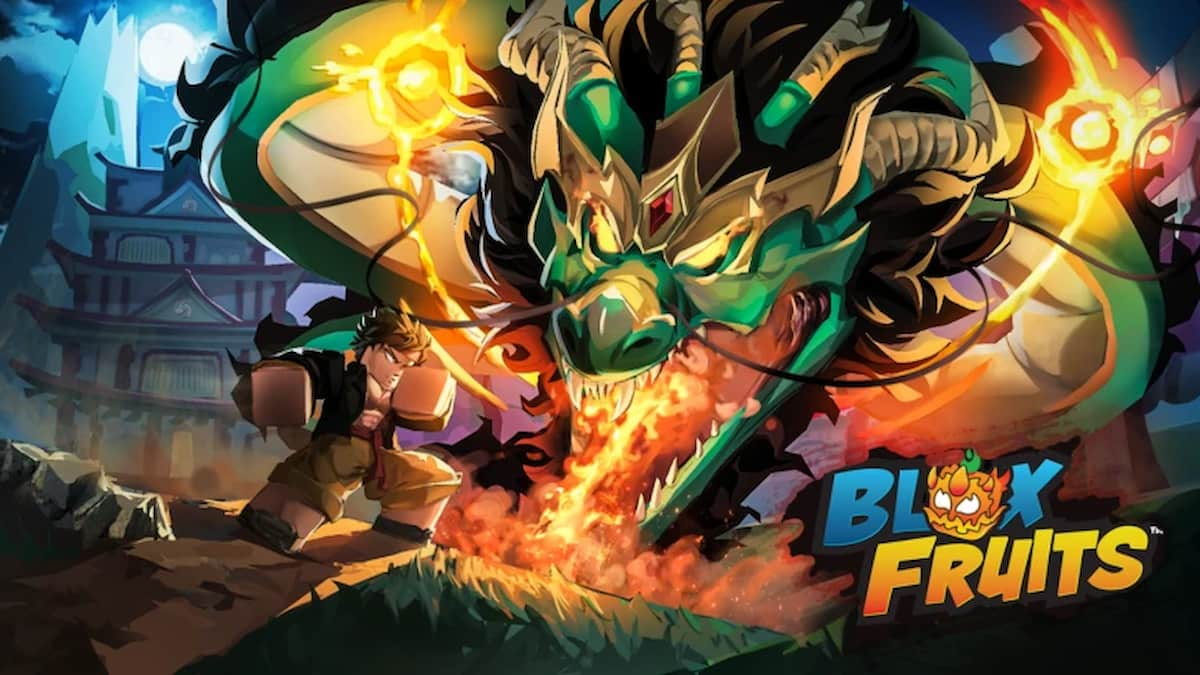



Published: Sep 14, 2016 09:48 am